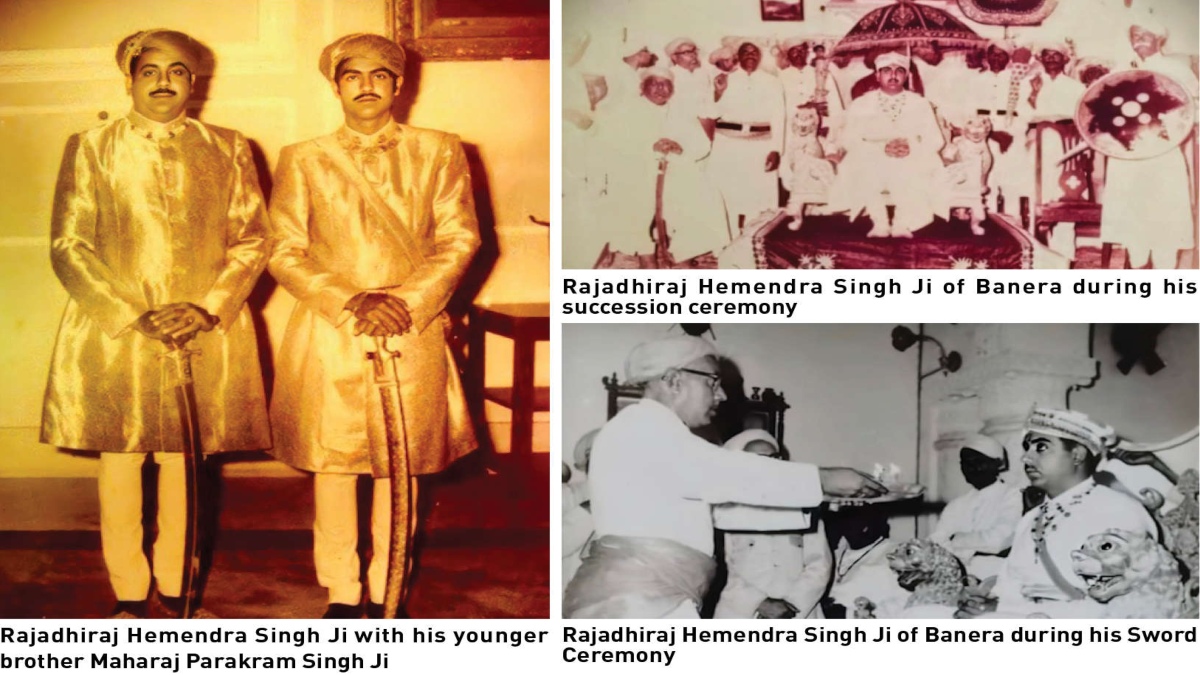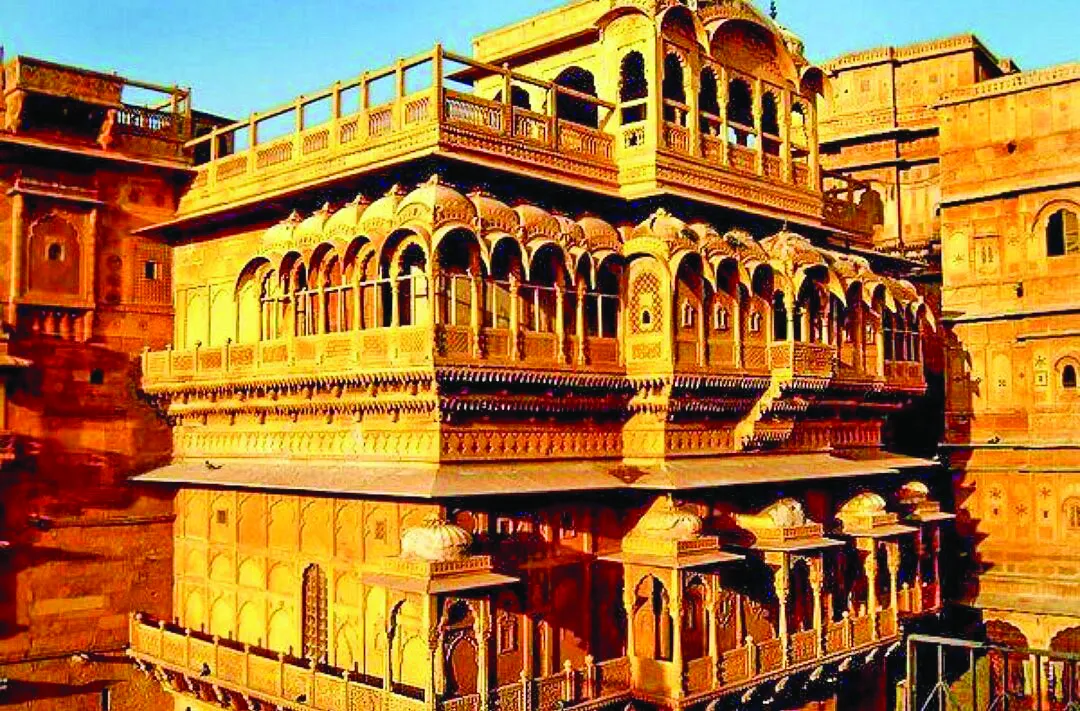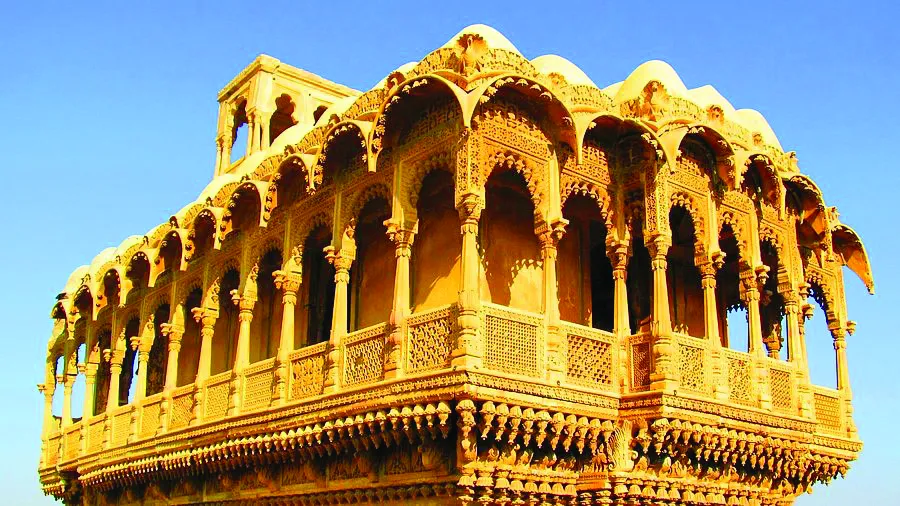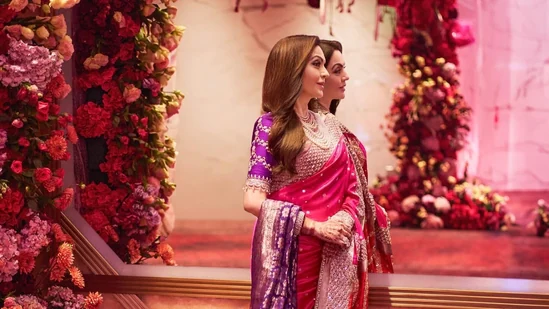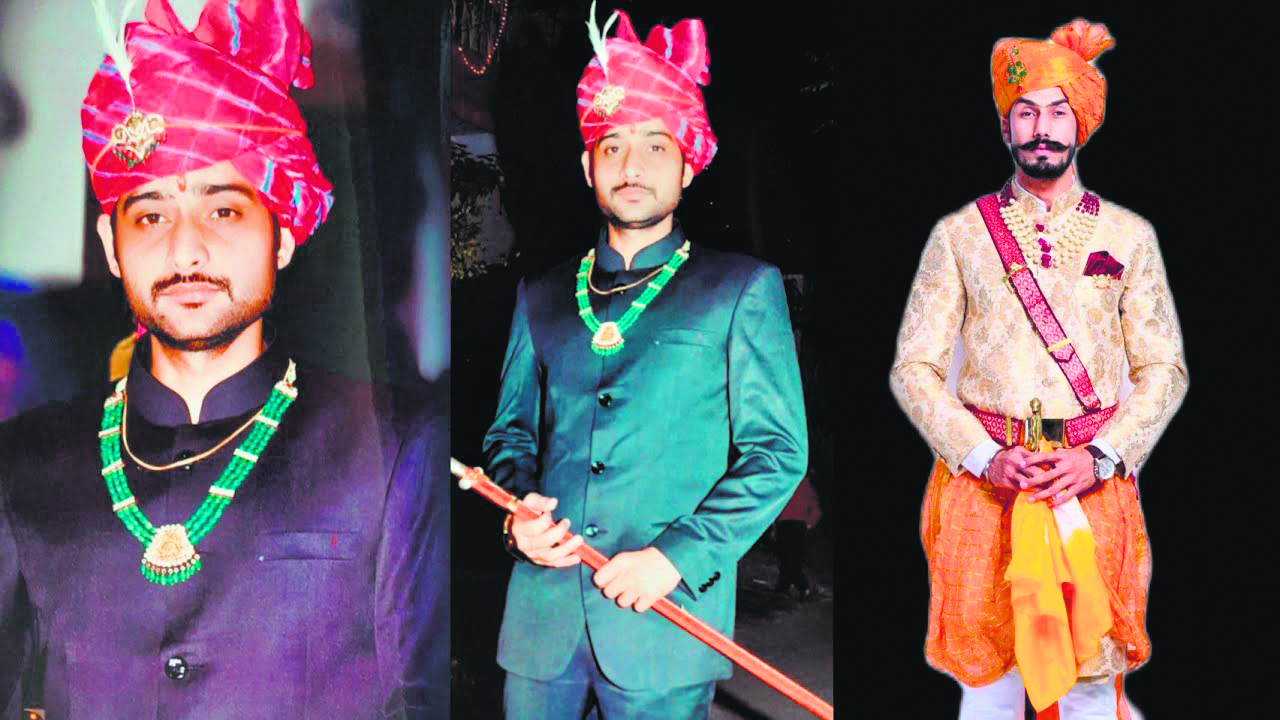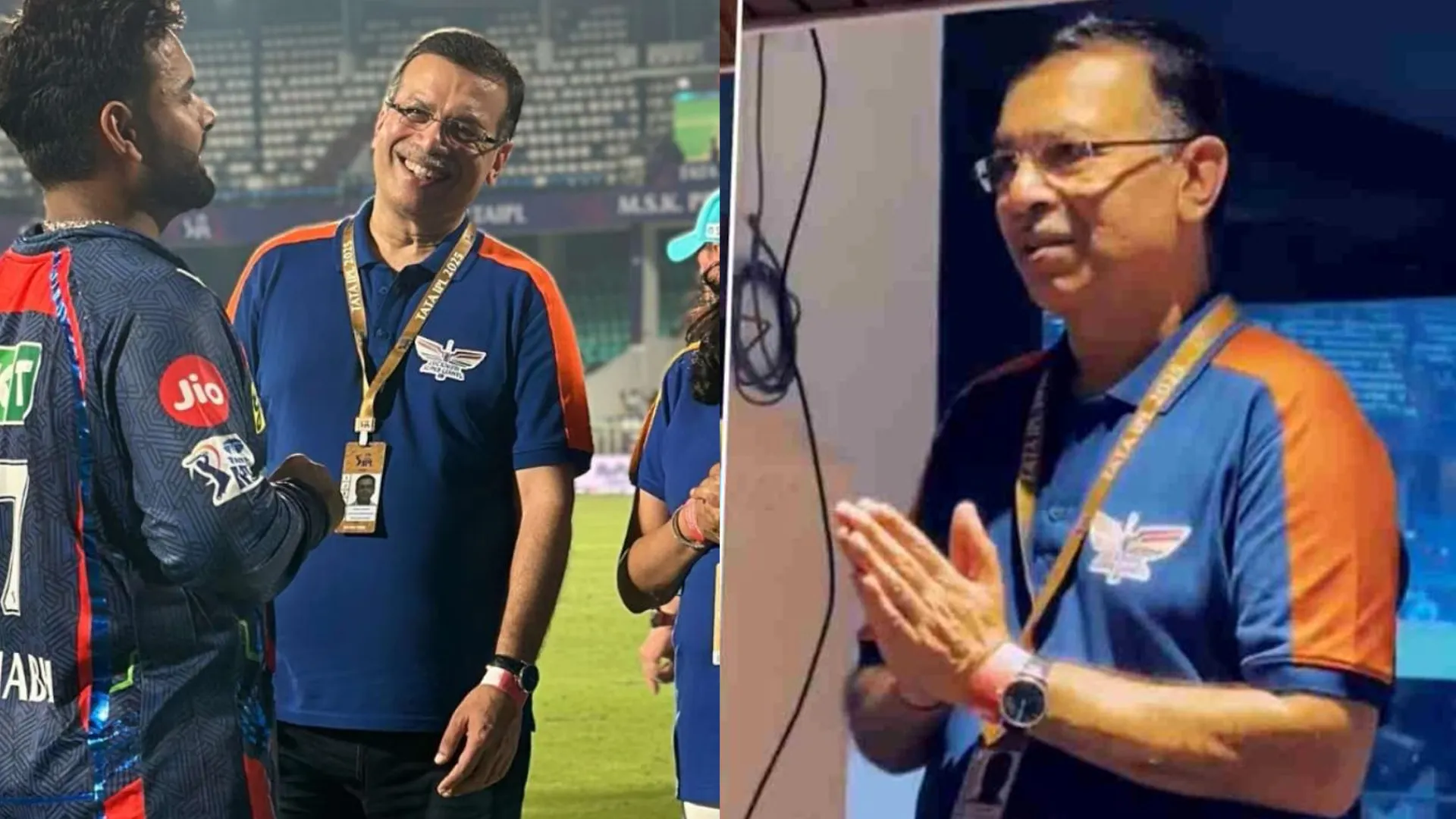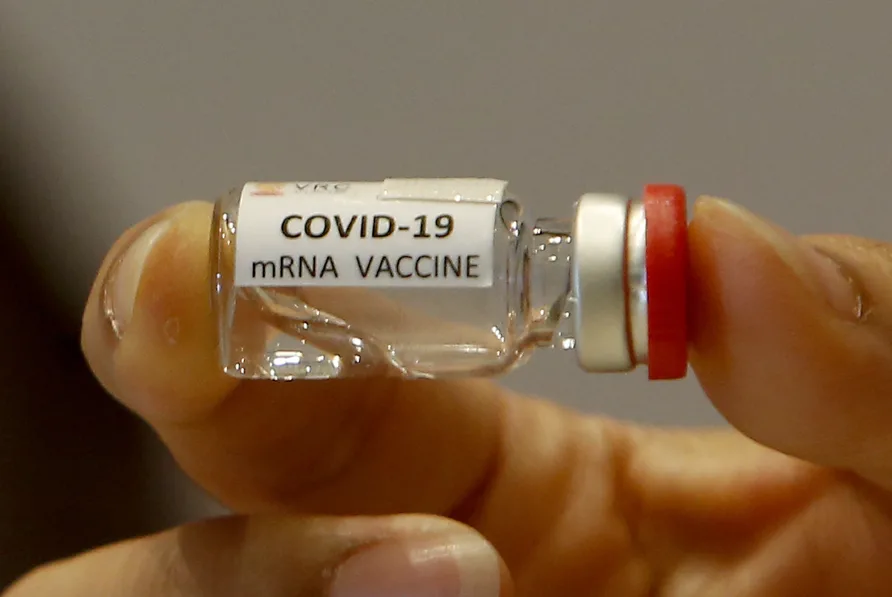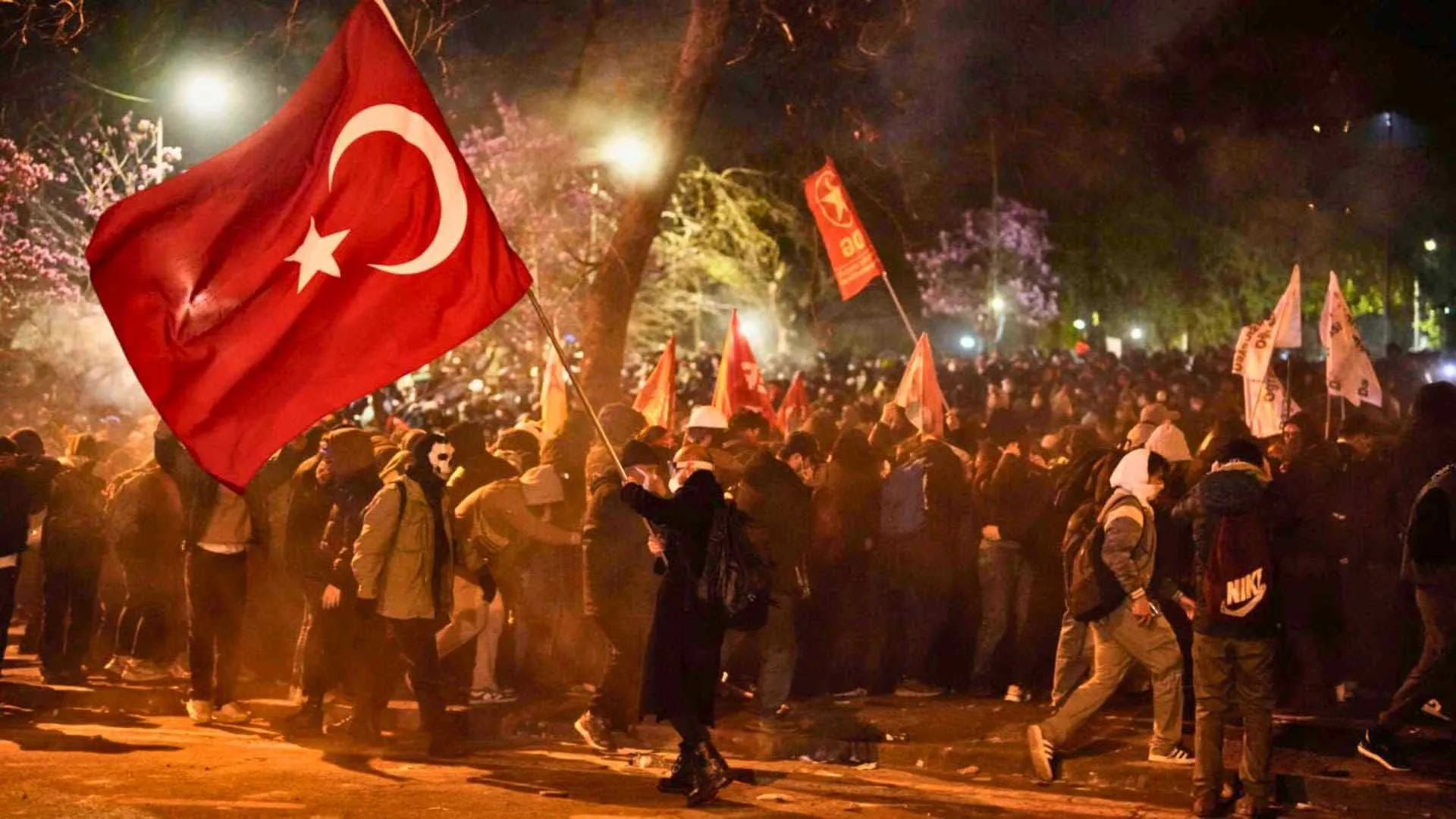Three months ago, I shared a vintage photograph on Instagram of Rajkumar Pratap Singh Ji of Banera along with his best friend, my great-grandfather Rawat Jai Singh Ji of Meja from their days at Mayo College, Ajmer. My caption read, “The foundation of the Banera-Meja bond which was laid by these two schoolboys more than a century ago strengthened further with the passage of time. Both their descendants Rajadhiraj Hemendra Singh Ji of Banera and Rawat Hamir Singh Ji of Meja shared such a unique camaraderie that the anecdotes of their exemplary friendship and innocuous one-upmanship continue to echo the social circles of Mewar even today.” I shared this post with Rajadhiraj and his generously worded appreciation was my last interaction with him. He passed away earlier this week on 31 May 2021.
 Rajadhiraj Hemendra Singh Ji of Banera.
Rajadhiraj Hemendra Singh Ji of Banera.

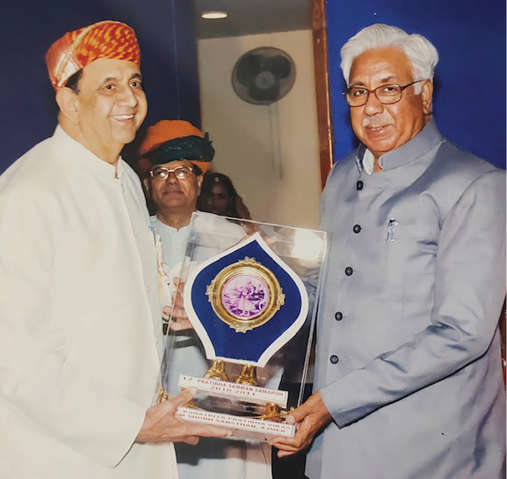
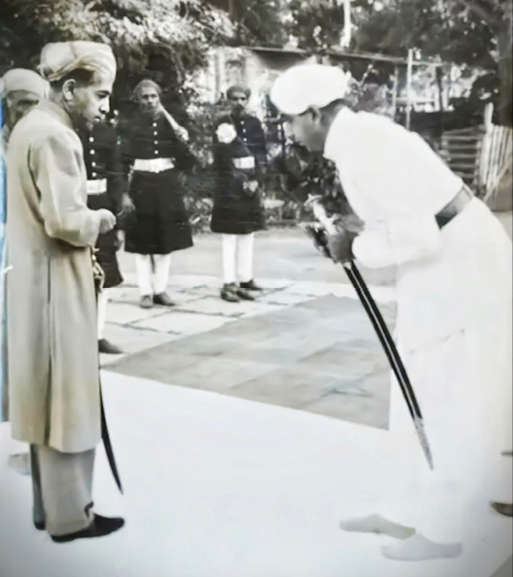
One of the most celebrated luminaries of Rajasthan, Rajadhiraj was born on 18 January 1946. He joined Mayo College in 1952 and went on to become the college monitor and captained several sports teams. A national-level tennis player, he is remembered by the game aficionados for playing a captivating match against the Wimbledon semi-finalist Ramanathan Krishnan during a national lawn-tennis championship at Jaipur in 1961.
Having lost his grandfather and father while he was still in school, he succeeded his great grandfather Rajadhiraj Amar Singh Ji to the throne in May 1967. His succession ceremony was exceptionally unique because the rulers of Banera having branched out directly from the first family of Mewar enjoy certain privileges that are not held by any other nobles of the region.
On succession to the ‘gaddi’ by a new Rajadhiraj, the Maharana of Mewar sends the ceremonial sword to Banera unlike in the case of all other nobles who have to go to Udaipur for their formal investiture. Abiding by this tradition, Maharana Bhagwat Singh Ji sent Rajpurohit Vishweshwar Nath Ji to Banera for the ‘talwarbandi’ ceremony. Following this ritual, Rajadhiraj headed to Udaipur and was received by Maharana Saab at Suraj Pole. This is another privilege exclusively granted to Banera where the Maharana steps out of his abode to receive the newly enthroned Rajadhiraj at one of the city gates.
Heading the esteemed house of Banera at the nascent age of twenty-one could have easily fuelled the arrogance of a young Rajadhiraj, but he shouldered his responsibility with the utmost dignity and relentlessly brought glory to his revered family name. Contesting the elections for the fifth Lok Sabha in 1971 from the Bhilwara constituency, he went on to create a record for being the youngest ever Member of Parliament in India.
Being the youngest parliamentarian did not deter him from courageously voicing his opinion on several important occasions. In December 1971 during the Indo-Pak war, Rajadhiraj was the first one to oppose the proposal of unilateral ceasefire during the initial stage. He was subsequently supported by stalwarts like Atal Bihari Vajpayee and eventually by Prime Minister Smt. Indira Gandhi herself. In 1973, he engaged in an impressive academic dialogue with the Union Minister of State for Education & Culture, Saiyid Nurul Hasan regarding the presentation of certain historical facts by the Indian Council of Historical Research. His views were later endorsed by renowned historians like Dr Raghuvir Singh Sitamau.
When Rajadhiraj became a member of the ninth Lok Sabha in 1989, he took everyone by surprise by taking his oath in the Sanskrit language. Impressed by this act, President of India R. Venkataraman presented him with a token of appreciation.
Rajadhiraj often shared interesting anecdotes from his political innings with us. One incident that comes to mind is from his first term in the Parliament when former President of India Pranab Mukherjee was a member of the Rajya Sabha. The two of them shared a passion for smoking pipes and often sat together in the Central Hall enjoying the flavoured tobacco that Rajadhiraj’s mother-in-law would send from Gujarat. Both of them also had a common penchant for Indian classical music and frequently attended recitals together.
Rajadhiraj’s deep-rooted interest in classical music, history and culture made him the appropriate choice for being in the executive committees of several socio-cultural organisations like the Jauhar Smriti Sansthan Chittorgarh, Maharana Kumbha Trust Bhilwara, and Akhil Bharatiya Mewar Kshatriya Mahasabha. A culture enthusiast at heart, he often joined us at Meja during the festival of Gangaur and participated in the local ‘gair’ dance with the village menfolk shedding all inhibitions about his social stature. He was always the crowd’s favourite!
My grandfather would often persuade Rajadhiraj into rendering classical songs and bhajans during intimate family gatherings. The two of them were best friends, but my grandfather being the older one always got his way. Rajadhiraj’s immense knowledge of classical music led to his deep friendship with the renowned maestro Pandit Jasraj and they engaged in lengthy discussions about bhakti ragas and shlokas on several occasions.
To the world, Rajadhiraj was a socio-political dignitary, but to me, he was ‘Banera Data’ who was the first person to reach my house with a bouquet when I scored a distinction in board exams. The one who sang a Ganesh bhajan to commence my wedding festivities. The one who showed up at Meja to commemorate my grandfather’s first death anniversary and stayed with us till the end of the day despite his hectic social calendar.
Last year, on the eve of his father’s 60th death anniversary, he had said, “I am going to observe maun (silence) till sunset tomorrow. I shall indulge in self-introspection as to whether I carried my duty sincerely all these years? Have I proved to be a worthy successor of Rajadhiraj Amar Singh Ji? Did I meet the expectations of the voters of the Bhilwara parliamentary constituency who elected me twice to the Lok Sabha? I could not utter a word that day because when Rajadhiraj spoke, we just listened. That was the respect he commanded. That was the respect he deserved. How I wish I had told him that day that your introspection is reflective of the enormity of your virtuous heart. They don’t make them like you anymore.

